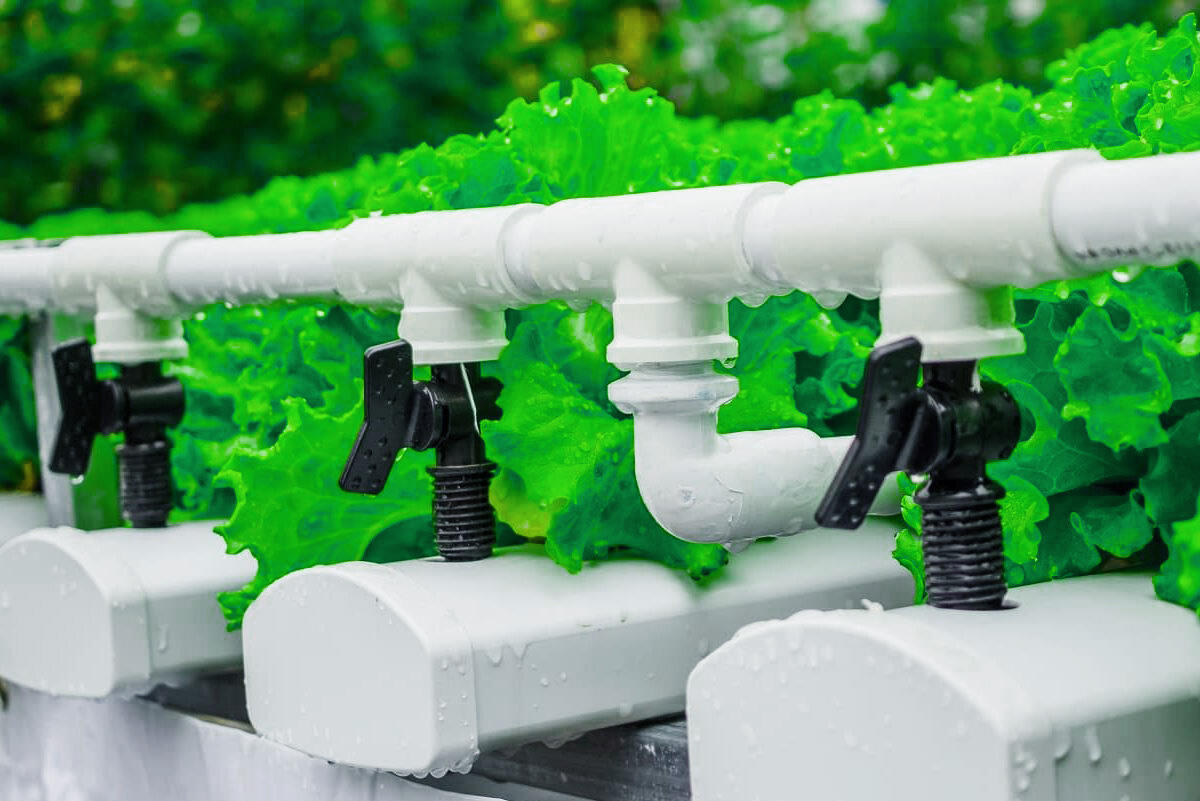Growing plants in nutrient solutions instead of soil is what Hydroponics systems focus on. They help in saving space and utilizing nutrient water solutions. Hydroponics is gaining popularity in home gardening and commercial farming. In this blog we will walk you through what Hydroponics is, how it works and its benefits which will give you an insight of why it is gaining so much popularity in today's commercial world.
Space saving and efficient
Hydroponics systems can be placed on rooftops, basements, or indoors which makes it space saving, unlike traditional gardening which requires a lot of land. Hydroponic systems also make it easier and more favorable to city or urban dwellers who do not have a lot of space, allowing them to grow their own foods. Hydroponics vertical farming makes it far more easier to grow more plants in a less area even further maximimizing the space.
Conservation of Water
Soil-less farming systems like Hydroponics are built to operate within a significantly lower water budget than traditional farming. In soil-based farming, a lot of water is wasted through evaporation and runoff. Hydroponics, on the other hand, recirculates the water. It provides just the right amount of water and moisture to the plants while reducing waste. Hydroponics systems are particularly preferred in areas where water is a limited resource due to the sustainability benefits.
Growth Rate
Plants raised in hydroponics systems typically have a greater growth rate than those cultivated in soil. This is partly due to access to nutrients and oxygen through Hydroponics systems. Plants are able to absorb nutrients in a hydroponics system way more efficiently than they could in soil. This efficiency not only shortens growth cycles but also increases the yield. For commercial growers, these systems mean faster returns on investment and the opportunity to plant more crops within a calendar year.
Reduced Problems With Pests and Diseases
These garden pest problems are less common hydroponics systems plants located indoors. Pests and weed problems troublesome to soil grown plants are very minimal to indoor plants grown in hydroponics systems. Plants grown in such environments are also sheltered from harmful weed killers and pesticides thus making them cleaner and healthier. Besides, the indoor setting can be tailored to the specific requirements of the plants, improving their health and productivity.
All Season Cropping
The other major advantages of hydroponics systems is the opportunity to grow crops in every season regardless of the external weather conditions. People focusing in such areas will be able to cultivate crops of high value. With so much control of the environment, the grower can continuously grow quality emission fruits and vegetables without any worry which is very good for consumers and also decreases the import goods.
Innovations within the Industry and Looking Ahead
Hydroponics is expected to positively impact the agriculture industry as a result of the increasing demand for sustainably grown and locally sourced food. Hydroponics is becoming even more efficient with the introduction of new technologies like automated nutrient delivery systems and more advanced lighting. Also, with more people and companies adopting the practice, as well as recognizing its benefits, we will likely see greater participation in community-supported agriculture and urban farming, strengthening food security and sustainability in our communities.


